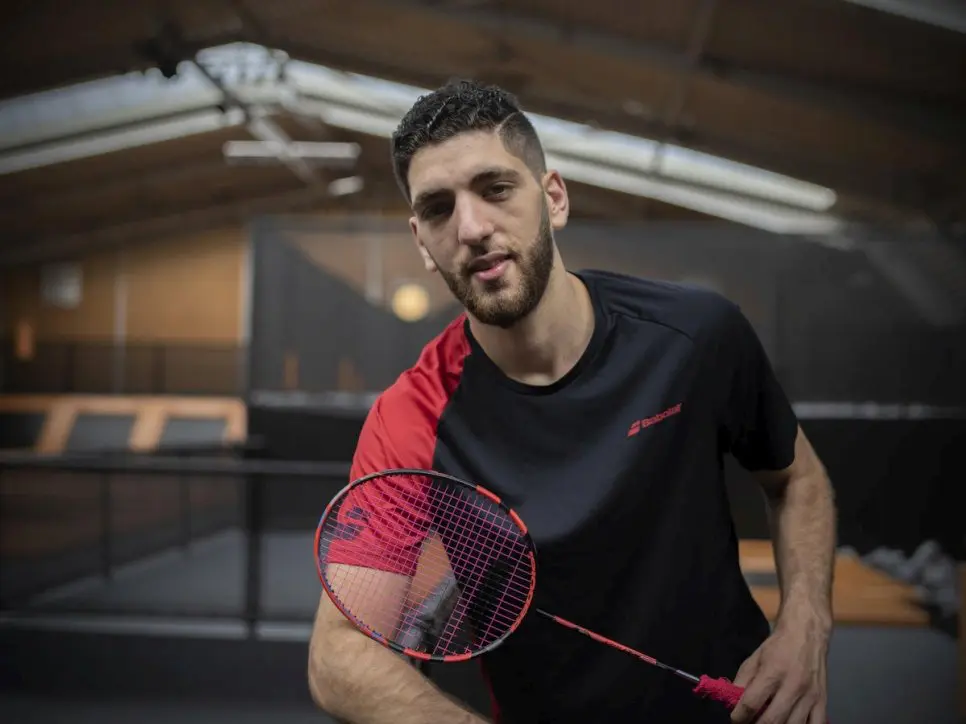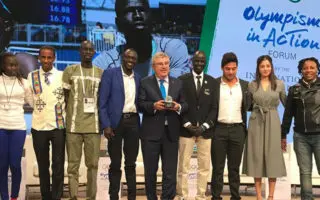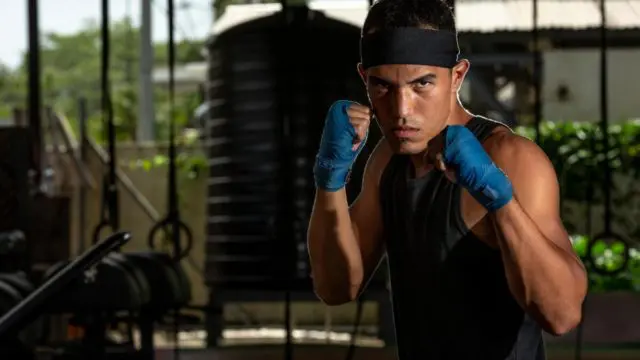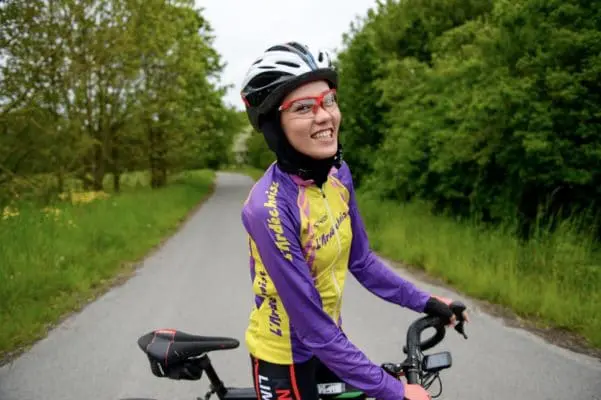
Syrian badminton player and Refugee Olympic Team member Aram Mahmoud at his club in Almere, the Netherlands, in 2019. © UNHCR/Béla Szandelszky
The Refugee Olympic Team features athletes who have overcome persecution and conflict and trained for years for the chance to compete at the highest level.
By UNHCR Staff
A badminton player from Syria, a road cyclist from Afghanistan and a long-distance runner from Sudan are among 29 athletes who will compete in Tokyo this summer as part of the 2020 Refugee Olympic Team. The team members, announced on Tuesday by the International Olympic Committee, represent 11 countries and will participate in 12 different sports.
Having trained for years in the hope of making the team, the athletes will seek individual glory in Tokyo while bringing attention to the plight of the more than 80 million forcibly displaced people around the world and showcasing the power of sport to transform lives.
“I feel very blessed to be part of the team,” said Syrian swimmer and UNHCR Goodwill Ambassador Yusra Mardini, after learning that she will compete in Tokyo having been a member of the first ever Refugee Olympic Team at the 2016 Rio Olympic Games.
“Sometimes it’s a lot to take on. This small team is representing so much hope, not only to refugees but to young people around the word. That’s why we work hard, and have been working hard since we were very young.”
Among the other team members is Aram Mahmoud, 23, who was a rising badminton star in his native Syria and competed for the national team before fleeing to the Netherlands to escape the conflict and continue his education and training in safety.
Aram says his local badminton club in Almere helped him settle into his new life in the Netherlands, allowing him to meet new friends and re-ignite his sporting ambitions. He subsequently won the 2019 Riga Championship as part of the Badminton World Federation Championships, and most recently reached the quarter finals of the 2021 Austrian Open.
Road cyclist Masomah Ali Zada, 25, was born in Afghanistan and developed a passion for cycling at a young age. After spending her early years in exile in Iran, Masomah returned to Kabul, where she and other young women started a cycling group despite the disapproval of some conservative members of society. She eventually made the national cycling team.
Masomah’s family fled to France in 2017, following threats to their safety due to Masomah’s cycling and their status as members of the Hazara ethnic minority. Now living in Lille, Masomah balances training with her studies for a degree in civil engineering. She hopes to inspire other Afghan women and girls to follow their dreams.
Another athlete hoping to make an impression at the games is 27-year-old Jamal Abdelmaji Eisa Mohammed. As a teenager, he fled violence in Sudan’s Darfur region that killed his father, crossing Egypt and the Sinai Peninsula alone on foot before reaching Israel, where he was granted refugee protection.
He now lives in Tel Aviv and is a member of the Alley Runner’s Club, which provides support to underprivileged athletes. He found a large support network and learned to speak Hebrew, and in 2019 he competed in the IAAF World Cross Country Championships in Denmark.
Also in the team are five more athletes who were members of the first Refugee Olympic Team ain Rio: Anjelina Nadai Lohalith, 26, James Chiengjiek Nyang, 33, Paulo Amotun Lokoro, 29, and UNHCR High Profile Supporter Rose Lokonyen Nathike, 28, are track athletes from South Sudan now based in Kenya; and Popole Misenga, 29, is a judoka originally from the Democratic Republic of the Congo now living in Brazil.
Subscribe to UNHCR’s mailing list
“You have, somehow, an additional responsibility,” UN High Commissioner for Refugees Filippo Grandi said. “Not just to do well in the competitions, which is the primary task that you have in Tokyo, but also to represent and make proud the millions and millions of refugees and displaced people around the world that will be watching you and feel proud about what you will achieve.”
The 2020 Tokyo Olympic Games will be held from 23 July to 8 August. A Refugee Paralympic Team competing in the 2020 Tokyo Paralympic Games will be announced in the coming weeks.
Originally published by UNHCR on 8 June 2021.





